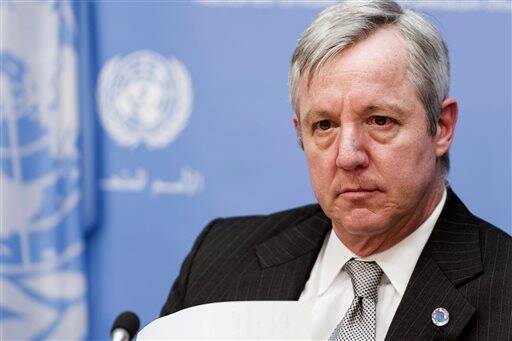Anthony Banbury, the United Nations assistant secretary for general field support, fought back tears as he revealed four new allegations of sexual abuse by peacekeepers in the Central African Republic at a press conference on Jan. 29. The cases join a long string of credible accusations against U.N., European and African troops and personnel of rape and soliciting child prostitution in the war-torn country. In an especially horrific instance, a 7-year-old girl said she performed a sex act on French soldiers in exchange for water and cookies.
In December 2015, an independent panel found the United Nations’ failure to prevent and respond to reports of abuse in the C.A.R. jeopardized “the credibility of the U.N. and peacekeeping operations.” To its credit, the world body appears to be making substantive reforms. For the first time, U.N. officials are publicly naming the home country of the accused and in the coming months will launch a website that documents allegations and disciplinary actions by country. The increased transparency and public pressure on responsible parties is welcome. But ultimately it is incumbent upon individual states to prosecute offenders—who under international law enjoy immunity in the country where the mission is taking place—but few ever do so.
Sexual exploitation is always and everywhere a horrendous crime; when committed by the very people charged with protecting desperate children, it is a moral outrage of the highest order. Bringing sexual predators to justice must now be one of the international community’s highest priorities. If the United Nations is not able to police its own ranks, how can it be trusted to restore a culture of lawfulness in the Central African Republic?








